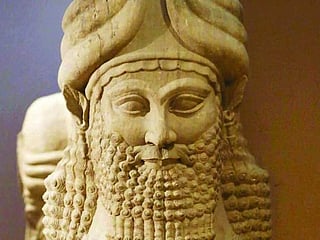Ordinary Iraqis cannot be blamed for their apathy
Only 41% turned out to vote in country’s fifth general election in the post-Saddam era

Iraqis have spoken — by not turning up in large numbers to vote. Sunday’s general election saw a record low turnout of only 41 per cent. In the 2018 elections, it was 44 per cent — a record low at that time. But who can blame the people for their apathy?
Their message is clear: We do not have faith in the political establishment and in the way power is distributed in Iraq. The entrenched political factions in Iraq, many with their own, well-armed, Iran-backed militias, have too much power in the country’s existing structure. They are highly likely to return to emerge on top.
This was Iraq’s fifth general election since 2003, when the United States invaded and overthrew the government of Saddam Hussein. A new electoral system this time made it easier for independents to stand. However, it did not go far enough in addressing the structural problems. It is still very difficult for independents to stand against the established forces.
In late 2019, thousands of Iraqis took to the streets to protest the boundless corruption of the ruling elite, the brutality of the security forces and their allied militias, and the high levels of mismanagement. Those protests were met with a harsh crackdown that left 600 people dead.
Promise of early elections
The only real concession the government gave was the promise of early elections, which were held on Sunday. But the death toll and a later campaign of targeted killings was so shocking that many protest leaders called for a boycott of the vote.
That could, to an extent, explain the low turnout. Firebrand Shiite cleric Moqtada Al Sadr is tipped to emerge as the kingmaker following the ballot. Al Sadr is a nationalist who takes a dim view of Iran’s overwhelming interference in the internal affairs of Iraq.
Prime Minister Mustafa Al Kadhimi did not run in the elections. But that doesn’t mean he cannot retain the post of Prime Minister. Al Kadhimi will be hoping the election will produce a hung parliament, like the last time.
Also like last time, he could emerge as a consensus candidate, as he has no political backing of his own. It stands to reason that he will be acceptable to two of Iraq’s most powerful backers, the US and Iran.
Whoever emerges as victor in the end, most Iraqis clearly do not believe it will lead to tangible changes in their daily lives.







